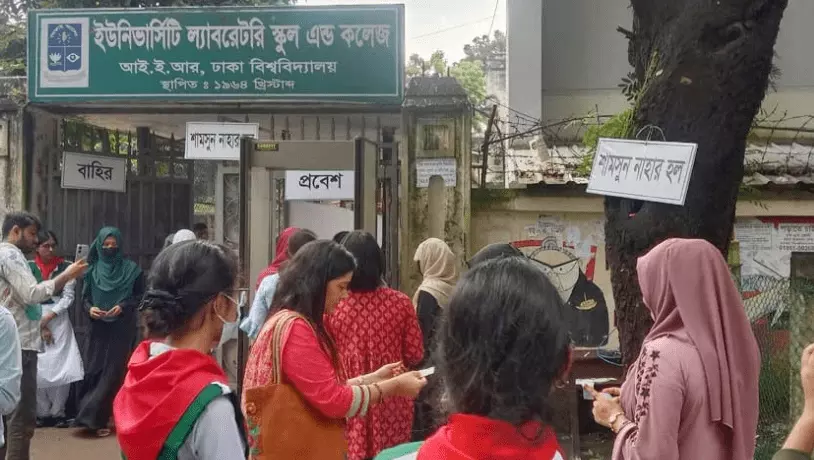
- Home
- India
- World
- Premium
- THE FEDERAL SPECIAL
- Analysis
- States
- Perspective
- Videos
- Sports
- Education
- Entertainment
- Elections
- Features
- Health
- Business
- Series
- In memoriam: Sheikh Mujibur Rahman
- Bishnoi's Men
- NEET TANGLE
- Economy Series
- Earth Day
- Kashmir’s Frozen Turbulence
- India@75
- The legend of Ramjanmabhoomi
- Liberalisation@30
- How to tame a dragon
- Celebrating biodiversity
- Farm Matters
- 50 days of solitude
- Bringing Migrants Home
- Budget 2020
- Jharkhand Votes
- The Federal Investigates
- The Federal Impact
- Vanishing Sand
- Gandhi @ 150
- Andhra Today
- Field report
- Operation Gulmarg
- Pandemic @1 Mn in India
- The Federal Year-End
- The Zero Year
- Science
- Brand studio
- Newsletter
- Elections 2024
- Events
- Home
- IndiaIndia
- World
- Analysis
- StatesStates
- PerspectivePerspective
- VideosVideos
- Sports
- Education
- Entertainment
- ElectionsElections
- Features
- Health
- BusinessBusiness
- Premium
- Loading...
Premium - Events

BNP claims Awami League deliberately diverted its votes to Islami Chhatra Shibir to weaken BNP’s poll prospects; secular nationalists warn against such strategies, which may strengthen Jamaat-e-Islami
The Awami League has been denied any scope for political activities by an executive order earlier this year, and its student wing, the Chhatra League, has been banned. But Bangladesh's long-time ruling party has been in the news recently over Students Union elections in two of the country's premier universities-- Dhaka and Jahangirnagar.
Polls to the Dhaka University Students’ Union have often been seen as the political barometer for Bangladesh. It has not merely been the training ground for future political leadership but also the trendsetter for national politics since the days of the autonomy movement and the independence struggle in the 1960s-1970s.
Islamists sweep university polls
So when the Islami Chhatra Shibir, the student affiliate of the Jamaat-e-Islami, swept both the Dhaka and the Jahangirnagar Students Union elections this month, for the first time since Independence, it came as a huge surprise. It was never seen as the favourite, and the scale of the student outfit’s triumph was unbelievable.
Also read: Home in disorder, but Bangladesh keen on sending troops to Ukraine
The Jatiyobadi Chatra Dal, the student affiliate of the Bangladesh Nationalist Party (BNP), was considered the frontrunners. Its failure to win a single post in either of the two university polls stunned not only the party leadership but also the country’s political class. What was more stunning was the margin of the victories. For example, the Islami Chhatra Shibir candidate won the vice-president post in Dhaka University by a margin of nearly 9,000 votes, bagging nearly three times the votes secured by the Jatiyobadi Chatra Dal candidate.
Awami votes went to Chhatra Shibir: BNP
Immediately after the university polls, BNP leaders started to explain the stunning defeat of their student affiliates, putting the blame on "Awami League machinations." They alleged that though ousted from power, the Awami student affiliate Chhatra League continues to have a large number of supporters in the university campuses, and that most of them had voted for the Islami Chhatra Shibir candidates because of directions from their top leadership. Many independent commentators also endorsed this line of argument, attributing to huge margin of victory of Chhatra Shibir candidates to the ' silent Awami vote bank.'
Now the argument would appear strange to any long-time Bangladesh watcher because it is not the Awami League but the BNP that has had a formal political alliance with the Jamaat-e-Islami. The two were partners in the coalition government that ran Bangladesh between 2001 and 2006. The Jamaat-e-Islami is Bangladesh's leading Islamist party, which is opposed to the 1972 secular constitution promulgated by the nation's first government helmed by the Awami League. While the Awami League spearheaded the country's Liberation War, the Jamaat-e-Islami stood in firm support of the Pakistani military junta and the cause of a united Pakistan.
Also read: Why Jamaat-e-Islami’s win in Dhaka University rings warning bells for India
Tactical move by Awami League?
It is BNP's founder, Gen Ziaur Rahman, who rehabilitated the Jamaat-e-Islami to use it against the Awami League, which remained a potent force even after the assassination of its top leadership in 1975. His successor, General Ersha,d boosted the Jamaat-e-Islami's stock by declaring Islam as the state religion.
But while Zia's BNP emerged as the main challenger to the Awami League, Ershad's Jatiyo Party is now close to the Awami League. The Sheikh Hasina-Khaleda Zia personality clash has aggravated the Awami-BNP rivalry.
While the BNP thinks the Awami League has secretly backed the Jamaat-e-Islami in the university polls to weaken its electoral prospects in the national elections, some think this might be a tactical ploy by the Awami League to drive a wedge between the former allies so that the BNP and Jamaat break apart and fight each other. Already, clashes between their supporters have been reported from some parts of the country. This divide may be aggravated if the Jamaat leadership is led to believe they can fight and win the parliamentary polls on their own. Many in the BNP feel that way and think the divorce from Jamaat will spare it the embarrassment of siding with a party that opposed national liberation.
If the Awami League is not able to contest, many in BNP have reasons to feel their road to victory is clear.
Watch: Then Bangladesh, now Nepal: How youth is pushing out regimes in South Asia
What Jamaat win means for Bangladesh
But a few commentators offer a different explanation. They say the Awami League has always tried to monopolise the nationalist space and project that its ouster from power will facilitate a radical Islamist takeover. Now that it is actually out of power, a Jamaat victory in the university polls may aggravate those fears both at home and abroad, especially in neighbouring India. So some are suggesting that for the Awami League, a Jamaat victory in the university polls not only widens its chasm with the BNP but raises the fears of an Islamist takeover and consolidates secular nationalist opinion that may pressurise the interim government to withdraw the temporary ban on Awami League and its affiliates and pave the way for an inclusive election. Some impact on Western opinion cannot be ruled out either.
The Awami League has denied that its leaders instructed supporters to vote for Jamaat affiliates in the university elections. But some in the party say their supporters have mainly faced attacks and persecution from the BNP after Hasina's ouster last year, and that would have influenced their vote, somewhat for reasons of survival.
Backing Jamaat may be perilous
Some BNP leaders, like the formidable woman MP Barrister Rumin Farhana, have rubbished party leaders who blamed the Awami League for the defeat of their candidates. Farhana said BNP leaders should "seriously introspect" dispassionately and try to control indiscipline within the party. She said the conduct of many party leaders and activists had created a negative image.
But some secular nationalists have warned the Awami League against backing the Jamaat-e-Islami in any sphere, not even for the obvious short-term tactical mileage. They argue that strengthening the Jamaat-e-Islami in any way will jeopardise the very foundation of independent Bangladesh and undermine the ideology on which it was founded after a bloody eight-month-long Liberation War.
Also read: Nepal uprising bears uncanny likeness to Hasina's ouster; is deep state involved?
With the surge in grassroots-level Islamist radicalism, not the least because of the expansion and recognition of madrassa (Islamic seminaries) education during Awami League rule, they clearly have a point.
(The Federal seeks to present views and opinions from all sides of the spectrum. The information, ideas or opinions in the articles are of the author and do not necessarily reflect the views of The Federal)


